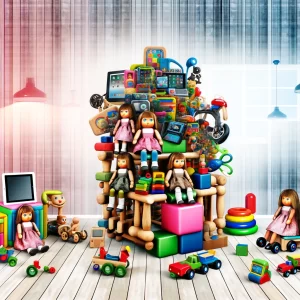In the rapidly evolving landscape of societal norms and technological advancements, each generation faces its unique set of challenges. While it’s easy to spot the conveniences that modern technology has afforded Millennials and Gen Z, it’s equally crucial to recognize the aspects that made life tougher for Boomers. This comparison isn’t about belittling the struggles of any generation but rather shedding light on the distinct hardships that defined the Baby Boomer era. Here are eight ways life was tougher for Boomers than Millennials and Gen Z.
1. Limited Access to Information
For Boomers, the quest for information was a physical endeavor. Libraries and printed encyclopedias were the primary sources of knowledge, often leading to time-consuming research processes. The absence of the internet meant that accessing up-to-date information required more effort and resources, making life tougher for Boomers, especially in academic and professional settings. This limitation not only hindered quick learning but also made global connectivity a far-fetched dream compared to the instantaneous digital communications Millennials and Gen Z enjoy today.
2. Communication Constraints
Boomers didn’t have the luxury of instant messaging, emails, or social media platforms. Long-distance communication was a tedious and costly affair, often relying on mailed letters that took days or even weeks to reach their destination. Telephone calls, too, were expensive, particularly for international connections. This lack of instantaneous communication tools made maintaining relationships across distances tougher for Boomers, affecting both personal connections and international business relations.
3. Economic Volatility and Job Security
The economic landscape during the Boomer years was marked by significant fluctuations, including recessions and the oil crisis of the 1970s. Job security was a persistent concern, with industries undergoing substantial changes and layoffs being common. The absence of the gig economy and remote work options made it tougher for Boomers to adapt to economic downturns, often leading to prolonged periods of unemployment or the necessity to stick with unsatisfying jobs for stability.
4. Rigid Gender Roles and Social Expectations
Boomers grew up in an era where societal norms and gender roles were more rigid and defined. Women, in particular, faced considerable barriers in the workforce and were often expected to prioritize homemaking over professional ambitions. This rigidity made it tougher for Boomers to pursue unconventional paths or challenge the status quo, leading to a generation often caught between personal desires and societal expectations.
5. Health and Wellness Knowledge
Boomers navigated their formative years and adulthood with limited knowledge about health, wellness, and the importance of mental health. Awareness and understanding of conditions like depression, anxiety, and the benefits of a balanced diet and regular exercise evolved significantly only later. This lack of information made it tougher for Boomers to make informed health choices, often leading to lifestyle-related health issues that could have been mitigated with the knowledge available to younger generations.
6. Environmental and Safety Regulations
In the Boomer era, environmental and safety regulations were far less stringent than they are today. Workplace safety standards, environmental protections, and public health policies were still in their infancy, exposing Boomers to higher levels of pollutants, workplace accidents, and health risks. This lack of regulation not only made environments tougher for Boomers but also contributed to long-term health and ecological challenges.
7. Education and Career Flexibility
Educational and career paths for Boomers were often linear and limited. The concept of career switching or taking gap years was less accepted, compelling many to stick with their initial choices, regardless of their job satisfaction or changing interests. This lack of flexibility made it tougher for Boomers to explore different opportunities or pivot in their careers, often leading to unfulfilled professional lives.
8. Technological Adaptation
While technological advancements have significantly improved the quality of life, Boomers had to adapt to these changes later in life, often facing steep learning curves. From basic computer skills to navigating the internet and digital devices, the transition has been challenging for many. This ongoing process of adaptation has been tougher for Boomers, contrasting with the digital nativity of Millennials and Gen Z.
Acknowledging How Life Was Tougher for Boomers Than Millennials and Gen Z
In reflecting on these aspects, it’s clear that life was indeed tougher for Boomers in many respects. Understanding these challenges fosters empathy across generations and highlights the importance of learning from the past to build a more inclusive and accommodating future for all generations.
Read More:
15 Lifestyle Choices of Baby Boomers That Spark Debate
16 Changes in Childhood Play: From Baby Boomers to Today’s Kids
Catherine is a tech-savvy writer who has focused on the personal finance space for more than eight years. She has a Bachelor’s in Information Technology and enjoys showcasing how tech can simplify everyday personal finance tasks like budgeting, spending tracking, and planning for the future. Additionally, she’s explored the ins and outs of the world of side hustles and loves to share what she’s learned along the way. When she’s not working, you can find her relaxing at home in the Pacific Northwest with her two cats or enjoying a cup of coffee at her neighborhood cafe.











































